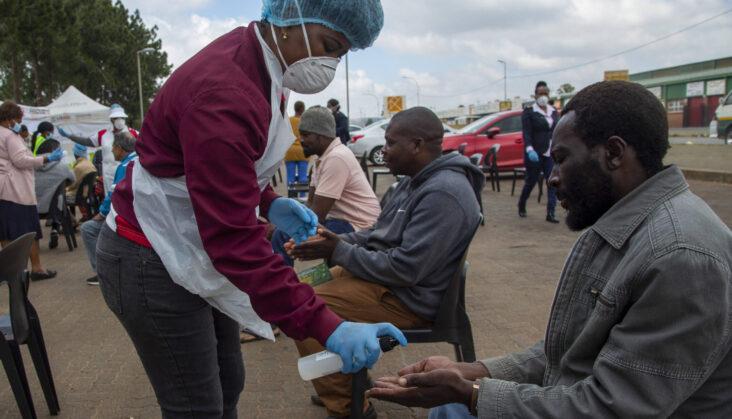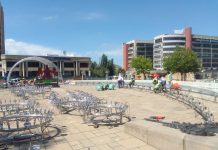Africa-Press – Lesotho. We, African Voices of Science, recognise that the Covid-19 pandemic has illustrated more than ever before the importance of science in modern society. Science has proved itself as our most vital tool to provide greater knowledge of the virus, and how we can best respond to the crisis.
Though Africa accounts for almost half of global deaths from communicable diseases, sub-Saharan Africa only represents around one per cent of the world’s scientific output.
This is unacceptable. Today, 615 million Africans do not have sufficient access to quality healthcare. This, combined with the catastrophic rise in healthcare costs, is pushing the continent to breaking point.
We urgently need greater proactivity and ownership from African governments if we are to tackle our growing healthcare deficit and respond quickly and effectively to future health threats.
On 10 December, at the Galien Forum Africa, we call on governments, multilateral agencies and businesses to urgently expand investments in health research and development (R&D), to increase the quality and accessibility of our healthcare systems.
As scientists, we are calling for the following: Strengthening access to public health information Africa is plagued by misinformation around the importance of science, innovation and R&D.
This is having detrimental consequences in the fight against Covid-19, increasing vaccine hesitancy and preventing the development and adoption of new tools and the efficiency of disease surveillance.
We, therefore, call on African leaders to invest in making crucial health information accessible to Africa’s population of 1.2 billion people, in order to tackle the misinformation crisis that acts as a barrier to good health.
Local investment in scientific and manufacturing capacity Despite the global nature of the pandemic, global solutions are not universal or consistently applicable to regions like Africa.
It is ever more evident that countries with well-established innovation infrastructure respond to crises more quickly and decisively, and that investment in developing these foundations is crucial for developing effective solutions.
It is the people of Africa that know how to solve the continent’s biggest problems, and as such, we need leaders to invest in local laboratories, infrastructure and technology to ensure we can respond effectively to our communities’ existing, and future, health threats.
Investment in education To successfully address Africa’s health crisis, it is critical we invest in the future, and education is at the cornerstone of this goal.
We must build the next generation of scientists and ensure we promote neglected communities, most notably women, to enable representation at all levels.
African leaders must increase investment in teaching and education, to elevate the future generation of scientists, doctors, nurses and healthcare professionals. Strengthen access to essential medicines and vaccines
Covid-19 has shown the importance of increasing access to quality medicines and exposed under-investment in R&D for medical diagnostics, with the capacity to develop and manufacture tests unevenly distributed around the world.
African experts must be at the forefront of developing new testing solutions that meet our needs and are digitally connected to the health system to support pathways to treatment and strengthen disease surveillance.
Organisations like the African Medicines Agency (AMA) also seek to strengthen regulatory frameworks in order to expand access to effective, safe and quality medicines for all.
African leaders must engage with the AMA and other regulatory frameworks if we are to successfully transform healthcare accessibility across the continent.
Scaling-up Africa’s digital transformation History has demonstrated how crises can drive transformative change, and the Covid-19 crisis has been no different.
As a result of the pandemic and social distancing strategies, we have witnessed an acceleration of digital transformation in Africa, which had previously lagged behind.
After the past year, the importance of data and surveillance to target resources and tailor our response to disease cannot be denied. To achieve an efficient healthcare system, African governments and the private sector must continue to invest in technology and digital innovation.
Increased regional scientific cooperation Covid-19 has illustrated the need for cooperation between countries and regions, and the inability for a single nation to achieve health security on their own.
It is imperative that African governments champion regional cooperation, which will not only enhance scientific knowledge but also enable sustainable development on the continent.
Creating scientific networks and facilitating access to scientific information will also be crucial to building a strong scientific African research base that is integrated into the international scientific community.
For More News And Analysis About Lesotho Follow Africa-Press






